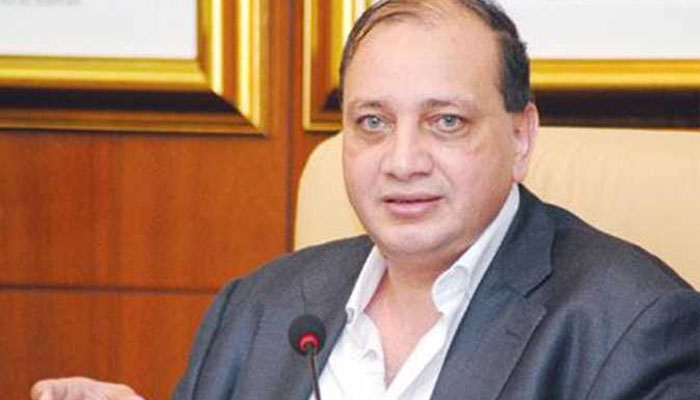
Afrasianet - Dr. Khaled Azab - It is the beginning of the end of the French presence in Africa, this is how we can describe the successive developments in France's relations on the African continent, as the collapses continue rapidly. Chad once served as an aircraft carrier for the French army and was a vital logistical headquarters, until the Chadian authorities decided to end the French military presence on its territory.
This decision is a severe blow to the French army's ability to conduct its military operations in the region.
The situation was made worse by Senegalese President Baciro Diomay asking France to withdraw 350 troops from his country. To be the latest in a succession of countries, France was forced to withdraw its forces from them following military coups in those countries, which coincided with the escalation of popular hostility towards France, and that list includes Mali, Burkina Faso, and Niger.
All this exemplifies the reality of a politically troubled France, which is under the pressure of its ballooning debt and the loss of its veteran political class. France is no longer a country that can do anything for Africa.
The black continent is no longer the one the world has known in the postcolonial era, and France is no longer the model that Africans aspire to, with the rise of more attractive alternative models, such as China, Russia, and Brazil, which offer different economic and trade partnerships.
France, preoccupied with itself and embroiled in the Ukraine crisis, has no political imagination to revitalize its presence in Africa, so that its traditional policy towards the continent has reached an impasse. Macron tried to excite Africans with a policy of returning artifacts looted from Africa during the colonial era, most recently returning artifacts to Ethiopia, but African reactions were lackluster.
Mali adopted a new constitution in 2023 that abandons French as an official language, Rwanda replaced French with English in schools and universities, and Togo and Gabon joined the Commonwealth in 2022.
Despite this, however, the French language remains a unifying tool for a number of multicultural and multilingual African countries, which lack a common language, while 200,000 French people settle in many African countries.
All of the above affects France's hard and soft powers in Africa and underscores the fragility of France's control over the economy of many African countries. French elites educated in French schools and universities had the effect of perpetuating France's economic and cultural dependence, but with grants from other countries increasing three decades ago, this policy backfired on France's influence.
The US, China, and Russia are beginning to reap the benefits at France's expense. On the economic front, Total, which has subsidiaries in 40 African countries as an energy supplier, is suffering in Francophone African countries, while it does not face the same suffering in other African countries. The nationalization of uranium in Niger and gold in Burkina Faso went into the Russian orbit, where African economic resources revolve around politics.
Africa, which for decades has been a geopolitical domain for France, has become hostile toward France. France did not realize that African universities would produce elites with the ability to think and analyze independently of French influence.
These elites constitute a general awareness of Africa's independence and the need to manage national resources, and it is precisely this point that Western analysts ignore. Africa has matured to the point where anti-French sentiment, especially among young people unconstrained by the past, is becoming more present, as they realize that France has depleted their country's resources by controlling mining, oil, and cash, through the CFA franc, which entails putting half of France's monetary reserves, and by supporting dictators and corrupt elites.
All of this has generated popular grievances and long-standing resentment of France, as the scandals of bribing African rulers and French military intervention to support them have become questionable. Africa's emerging models within this framework challenge any influence associated with dominance and control over resources.
The challenge of Mali, Burkina Faso and Niger to form the Sahel alliance is a direct challenge to both the African Union and the Economic Community of West African States (ECOWAS), the traditional bodies that coordinate regional issues, and this coordination is seen in multiple forms in East Africa.
France is losing control of Niger's uranium and Burkina Faso is gone. If the new rulers who defected from France in the coming years cannot provide some kind of real development for their countries and good governance, they will be under the guillotine of growing African consciousness, which could topple them.
Africans suffering from poverty and the humiliation of migration no longer have the spaces of tolerance they gave to the movements that ruled after the so-called independence from colonialism, but a desire for development and to reap its fruits.
Here, France must adopt new strategic policies based on partnership, not control, as competition for influence in Africa has become fierce in light of the rise of countries that have huge financial investments that are not conditional on political influence, such as Saudi Arabia, Qatar, and Kuwait.
With the Chinese dragon entering forcefully and Russia's influence growing, if France continues to think it is the main Western player in Africa, it will have to face a challenge from within the West itself, represented by Britain, Germany, and the United States. So, if they don't coordinate with France, by competing they will open the way for another player that is not yet accurately calculated, namely Turkey.
It is, sirs, the Africa that will shape the future of the international economy in the coming years and, if it rises, will change the shape of international equations.
Let us wait for shifts in the balance of power within Africa in the next ten years.

